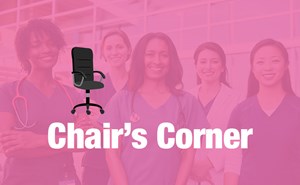
Confidence
“Doctor,” the nurse persists at my elbow, “Your patient is hypotensive, what do you want to do?”
I am in the first week of my CCU rotation, and I am stuck. Last month when I was working in the department, I would have given fluids and looked up the dosing for pressors. This patient is already maxed on four pressors, and their heart is failing with fluid backing up into their lungs. Unless, of course, that fluid is from ARDS, since the patient is septic, and maybe the patient is actually intravascularly depleted. The team tried to visualize this patient's IVC earlier today, but wound dressings and body habitus precluded a clear assessment of the patient's volume status with the ultrasound machine I am still learning to use. "Doctor," the nurse asks again. I don't know what to do, and I freeze. As I am chasing through my mind for anything I might have forgotten from medical school which might apply to this sick patient, the nurse pivots off to find my senior resident. That night on my subway ride home, I rifle through reference books and review articles trying to piece together a plan for a sick cardiac patient who is septic, but I question any idea I think might be a good one instantly. I have no confidence in my assessment of this literature, nor in my management decisions.
When I was gearing up for my emergency medicine residency six months ago, I was warned that balancing work and life would be a significant challenge, I was told that this would be a difficult and emotionally taxing process, and I thought I was prepared to make mistakes and push myself as a learner, physician, and caretaker. What I didn't expect or brace for was the paralysis that comes with having no faith or confidence in myself or my decisions. Later, during a feedback session with the attending cardiologist, she expressed concern that I was too hard on myself. She spoke of a confidence gap women experience, where we can be our own harshest critics and that this punitive assessment we apply to ourselves may not reflect our true performance, but may also hinder our professional development.
In a recent article for the Atlantic, authors Claire Shipman and Katty Kay argue that women habitually underestimate their performance, attribute their successes to their environment and tend to not nominate themselves for promotion because women lack confidence relative to their male peers. These traits have resulted in a paucity of female leadership and representation at the highest levels of business and academia. The evidence for this confidence gap stems from a variety of studies, such as those done on business students which demonstrated women do not initiate salary negotiations as frequently as men, and if they do bring up the topic the women ask for 30% less. David Dunning, of the Dunning-Kruger effect, and Joyce Ehring looked specifically at how women's estimation of their competence impacted their assessment of performance on a science quiz. Women in this study rated their abilities a full point lower than the men's self-estimation on a 10-point Likert scale, and correspondingly estimated significantly poorer performance on the quiz. In fact, men and women had similar scores. Dunning further detailed his experience observing the attributions young women taking a challenging course at his university made about their performance; when the coursework became tough, they blamed their inadequacy, an internal attribution, where the men attributed their struggles to the external difficulty of the coursework. Shipman and Kay also shared anecdotes supporting the idea that women tend to freeze in their perfectionism; instead of pitching ideas to be shot down, women in the authors' experience preferred to find the best answer, supported by careful thought and analysis. The final message from Shipman and Kay's article was that confidence could be built up by hard work and risk-taking and that the gap, and therefore the disparity in professional achievement can be closed by an individual who puts in the work.
However, these authors inadvertently commit a sin in their attributions similar to that they levy against women in general: attributing an internal cause, lack of confidence, to a problem that may be shaped by external causes. In a rebuttal, also published in the Atlantic, author Stéphanie Thompson argues it's not an absence of confidence holding women back, but the reactions women face when they project confidence that prevents women from putting themselves forward. Thompson describes a recent study where students wrote essays for a scholarship application which described their accomplishments. When the women were told their essays would be anonymous, they were more likely to speak highly of their achievements than when the essays were supposedly published with the authors' names. The researchers argue this behavior comes from a fear of backlash that confident women face when they own their achievements. Measures aimed at increasing an individual woman's confidence, such as power poses, have not shown benefit in overall professional achievement for women. However, restructuring the environment such that self-promotion is encouraged by all employees has demonstrated promising effects.
As an intern, it certainly feels like there is room for both hypotheses to be driving my behavior, but neither of these theories fit my situation perfectly as a physician in training. I absolutely lack confidence in myself, especially relative to my more confident appearing peers. But I am also in the beginning stages of practicing an art which takes a lifetime to master. I am supposed to feel unsure. Rounding is an exercise which forces me to propose ideas alongside my peers, to take risks informed by my skills and medical knowledge. However, the regularity with which my plans undergo serious revision leaves me feeling very unconfident, and I worry about whether the consequences of misplaced confidence might result in patient harm. I don't fear overt retaliation for acting over-confident as a woman; I fear the harm that might result if someone were to believe me if I were wrong. Moving forward, I plan to continue to have a healthy respect for the gaps in my knowledge, but I will also temper my inner critic by recognizing that all of my fellow co-interns, the more senior residents and even attendings can get stuck when they do not know the best course for a patient's care. Sometimes the best answer is to hold back and observe, which is what we chose to do with my hypotensive CCU patient after a discussion with the entire team.
Jessica Krueger, MD
PGY-1, Einstein Medical Center



